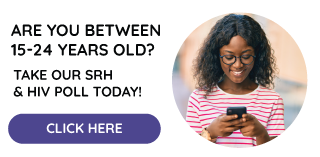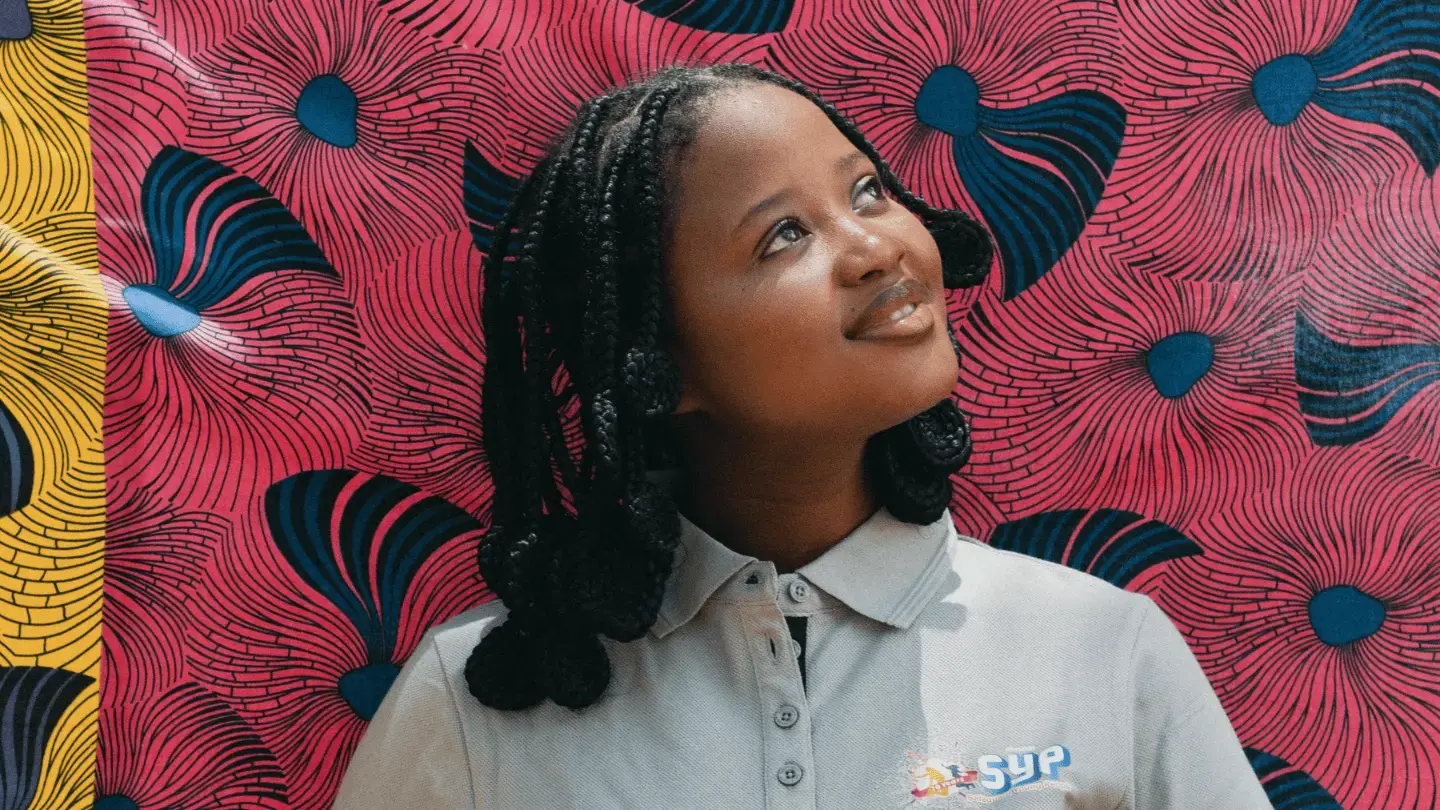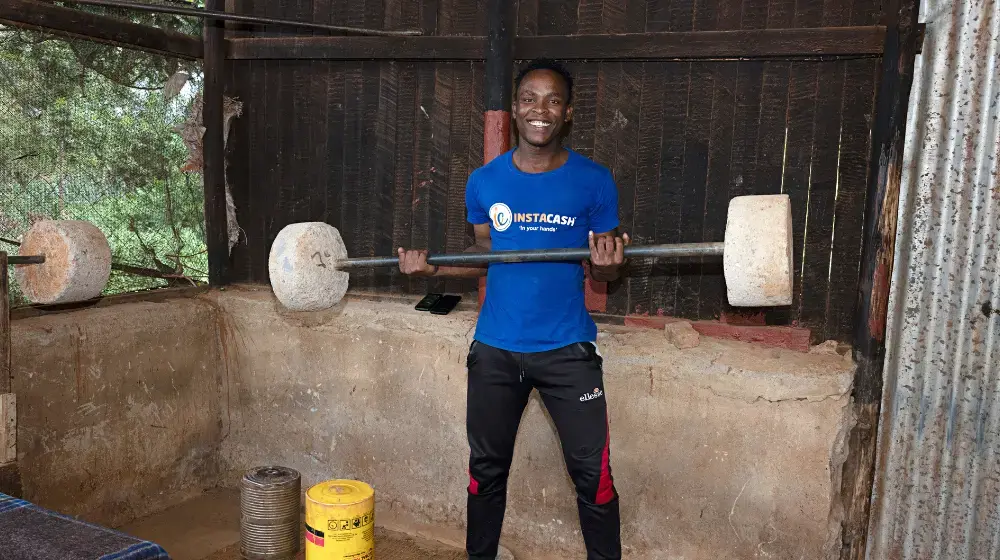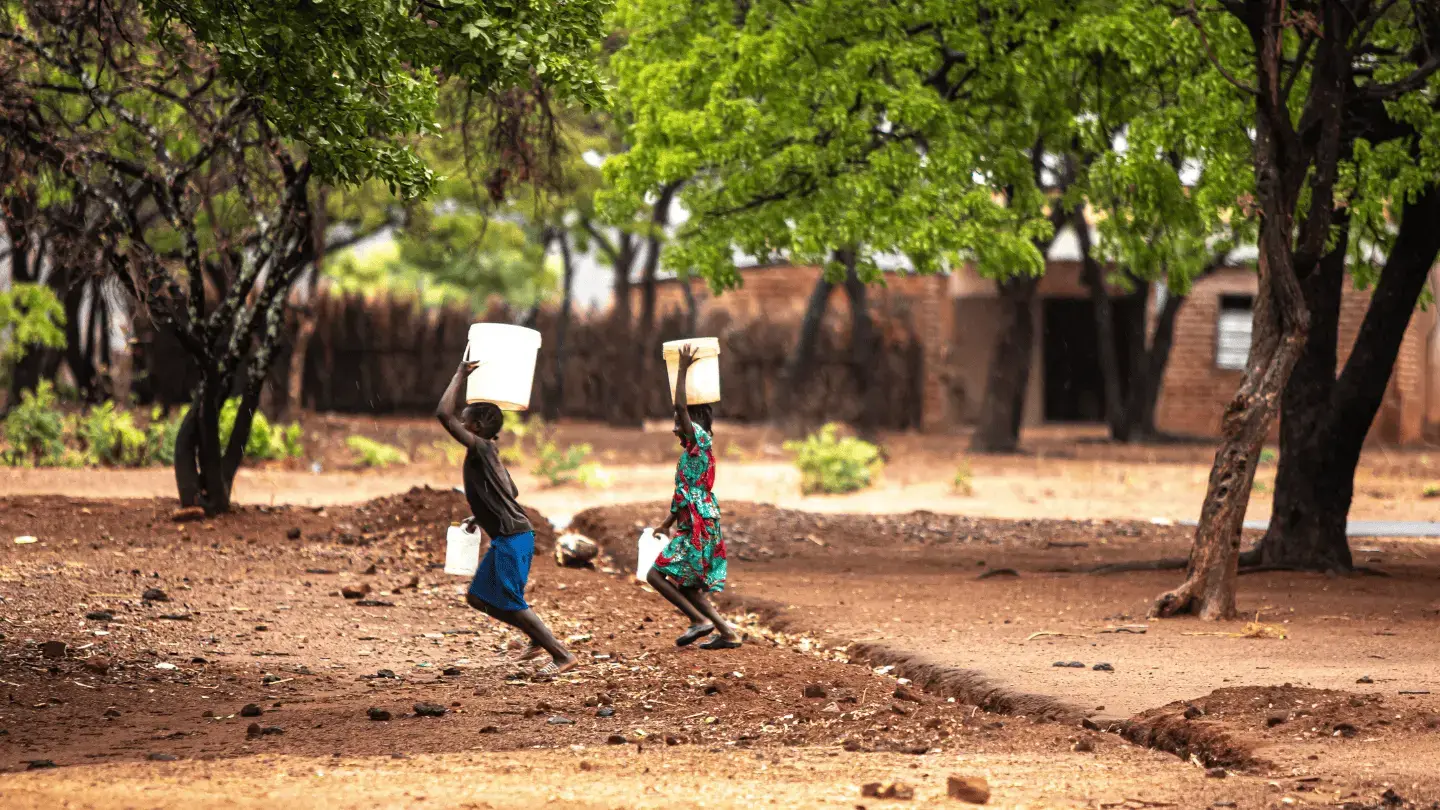JOHANNESBURG, South Africa—To help improve management of the COVID-19 pandemic in East and Southern Africa, UNFPA and UNICEF are developing new content on sexual and reproductive health and HIV that is aimed at adolescents and young people, through the Safeguard Young People and 2Gether for SRH programmes. In April, the two UN agencies rolled out a new poll on adolescent sexual and reproductive health and HIV social behaviour change communication (SBCC) for the U-Report, Internet of Good Things (IoGT) and TuneMe mobile platforms.
COVID-19 is impacting the lives of billions of people around the world. Effective management of the pandemic depends in part on good communication and people’s knowledge, attitudes, behaviours, and practices. Good management of a pandemic requires an understanding of these linkages over time and how they impact the lives of children and young people. This requires community-sourced data that can be captured in a time-series manner and be made immediately available.
To this end, a Time Series Community-Sourced Data for Rapid Assessment of Behavioural Changes, Coping Strategies and Evolving Needs During COVID-19 survey was conducted in the East and Southern Africa region. This data will complement other existing data to provide social and behavioural insight, which will help inform policy and programming decisions relating to COVID-19.
About the three platforms
Internet of Good Things (IoGT) is a mobile-ready website that enables access to educational and lifesaving information. IoGT is available for free, without data charges, in 65 countries through partnerships with Mobile Network Operators and Free Basics by Facebook. To date, more than 40 million users have accessed IoGT since its launch in 2015. IoGT hosts content modules in up to 14 languages and is configured to support unique user profiles, surveys, polls, comments, and open-ended questions. In East and Southern Africa, IoGT has had more than 8 million users in 12 countries.
IoGT’s users include frontline health workers, educators, parents, caregivers, youths, and adolescents. IoGT sites are managed by UNICEF Country Offices and contain localized content. This typically includes content on maternal health, hygiene, emergency information on diseases, HIV and sexual health advice for adolescents, and internet safety. In response to COVID-19, IoGT content now includes information on how to prevent and identify symptoms of COVID-19, clinical guidelines for frontline health workers, and support for mitigating the secondary impacts of COVID-19, including GBV resources, anti-stigma messaging, and positive parenting strategies.
TuneMe is a mobile site (mobisite) developed and rolled out by UNFPA East and Southern Africa Regional Office (ESARO), under its flagship youth programme Safeguard Young People (SYP) and in collaboration with Praekelt Foundation, Ford Foundation and DFID. Tune Me is designed for low- and high-end devices in environments where high data charges and poor network coverage combine to limit access to online services. Tune Me is available in seven countries in Southern Africa: Botswana, Eswatini, Lesotho, Malawi, Namibia, Zambia and Zimbabwe - and has already reached over 4 million unique users.
Through social features and content designed to be youthful and interactive for users, Tune Me aims to equip adolescents with the information and motivation they need to make informed choices. Adolescents access Tune Me through the Internet browser on their mobile phone or through Free Basics by Facebook, which allows any young person with a mobile phone to access the platform without the limitation of data or Wi-Fi connectivity (Facebook, 2018). The Tune Me platform also includes a GPS clinic finder feature and an M&E system ‘built in’, which allows routine reviews of the reach of the mobisite disaggregate by age and sex, including bounce rates and preferred articles.
U-Report is a messaging programme for adolescents, youth and community participation, designed to address any issue that affects children and young people by collecting information from them to improve policy and programmes, and by directly providing life-saving information to the most vulnerable in a timely way. U-Report is run in collaboration with government partners, UNICEF programmes, and local NGOs or CSOs. UNICEF country offices and our partners use it to share information, raise awareness, and collect quantifiable data on specific areas that impact the most vulnerable - including child protection, health, education and emergency response. Responses received are analysed in real-time, mapped and displayed on a public dashboard.”[1] It aims to engage adolescents and youth and provide a safe space for them to raise their voice and concerns.
U-Report is currently active in 12 East and Southern African countries, engaging about 2 million adolescents and young people in the region. Through polls and other ways of engagement, U-Report is meant to:
- Empower young people to share opinions on issues that matter to them;
- Provide valuable information to community members and governments and strengthen structures to ensure this information is acted on;
- Amplify voices for advocacy at local, national, regional, and global levels;
- Use citizen data to improve accountability towards them and strengthen programmes run by UNICEF and partners;
- Administer the creation and distribution of relevant and high quality written or graphic content in the form of e-newsletters, social media messages and campaigns;
- Influence positive behaviour change;
- Ensure U-Reporters are given feedback on how their data is used, as well as information to allow them to act in areas of interest or concern.
How you can participate
It only takes three minutes to complete the poll. Start by selecting your country from the list below:
About the Safeguard Young People Programme
Since 2013, SYP has been empowering adolescents and young people aged 10 to 24 years (with a special focus on adolescent girls) to protect themselves from sexually transmitted infections (STIs) including HIV, early and unintended pregnancy, unsafe abortion, early marriage, gender-based violence and harmful cultural practices, while promoting gender-equitable norms. The programme has been implemented in eight Southern African countries - Botswana, Eswatini, Lesotho, Malawi, Namibia, South Africa, Zambia and Zimbabwe. SYP is funded by the generous support of the Swiss Agency for Development and Cooperation (SDC).






